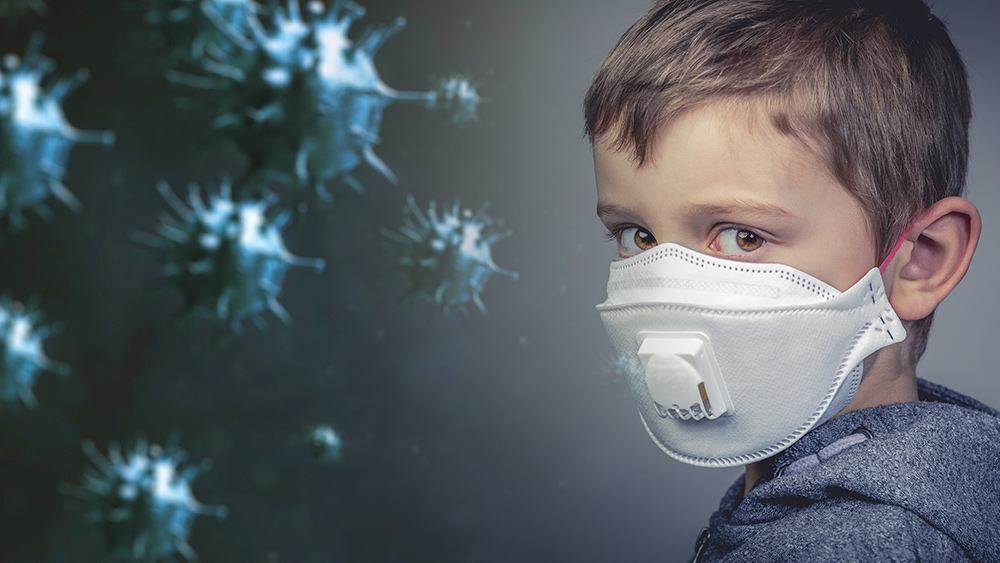Researchers find that hormonal compounds in beer could give feminine traits to alcoholic men
03/11/2020 / By Michael Alexander

Ease up on the beer, gentlemen — it might trigger breast growth in your bodies.
This is due to the presence of chemical compounds in the alcoholic drink, called phytoestrogens, which are linked to the development of female physical traits, such as the development of breasts.
Categorized as endocrine disruptors because of their ability to disturb normal hormone function, phytoestrogens are trace biochemicals produced by plants that act like estrogens in animal cells and bodies.
According to researchers, the idea that beer causes the development of female physical characteristics stemmed from accounts of women menstruating after handling hops (Humulus lupulus), which are used to give the drink its bitter and floral flavor. The compounds suspected of causing the said effects were phytoestrogens such as genistein, which is commonly found in soybeans and soy products. However, the amount they found was deemed to be insufficient to produce any estrogenic effect.
In 1999, another set of researchers discovered the existence of a phytoestrogen called 8-prenylnaringenin (8-PN), which was found to be 50 times more potent than genistein. However, much like the previous research, the phytoestrogen levels detected in beer were once again found to be too low to have any significant effect.
Researchers in 2001, however, raised the possibility that another compound, isoxanthohumol, might be biotransformed by the liver into the more potent 8-PN, thus greatly augmenting the estrogenic effect of hops. However, the theory was soon shelved after a study using human estrogen receptors found no such liver transformation. (Related: Hops, a plant used in making beer, can protect your liver … but it doesn’t mean your beer can.)
The isoxanthohumol metabolization theory was revisited in 2005 — but this time, it hinged on the premise that “the liver is not the only transformation site inside the human body.”
In a study published in the Journal of Agricultural and Food Chemistry, the researchers focused on the conversion of isoxanthohumol (IX) into 8-PN inside the human colon, which, the researchers said, contains “trillions of microorganisms with enormous metabolic potential.”
Researchers from the Faculty of Bioscience Engineering at Ghent University, impregnated four fecal samples with xanthohumol, IX and 8-PN. Upon incubation with IX, 36 percent of the compound was converted into 8-PN in one sample, with its estrogenic properties drastically increased, the researchers reported.
The researchers also noted that they observed the same phenomenon upon repeating the procedure with 12 other cultures, with the conversion seen in one-third of the samples. According to the researchers, this was indicative of the importance of interindividual variability in the intestinal microbial community. In addition, after strain selection, in which the researchers identified Eubacterium limosum as the strain capable of converting IX into 8-PN, the conversion efficiency of 90 percent was achieved. Finally, according to the researchers, strain supplementation to a non-converting fecal sample led to rapid and high 8-PN production at only one percent addition.
“Up to now, the concentration of 8-PN in beer was considered too low to affect human health. However, these results show that the activity of the intestinal microbial community could more than 10-fold increase the exposure concentration,” the researchers said.
“Because prenylflavonoids are present in many beers with IX being the major constituent, the results raise the question whether moderate beer consumption might contribute to increased in vivo levels of 8-PN and even influence human health.”
Aside from beer, phytoestrogens can be found in many plant-based foods such as soybeans and soy products, flax seeds and sesame seeds. In addition, the said compounds are also present in berries, dried beans, lentils, rice, alfalfa, mung beans, apples, carrots, wheat germ and rice bran.
Sources include:
Tagged Under: Alcohol, beer, breasts, Colon, Endocrine disruptors, endocrine system, estrogen, feminine traits, food science, health science, Hops, hormones, men's health, phytoestrogen, research



















